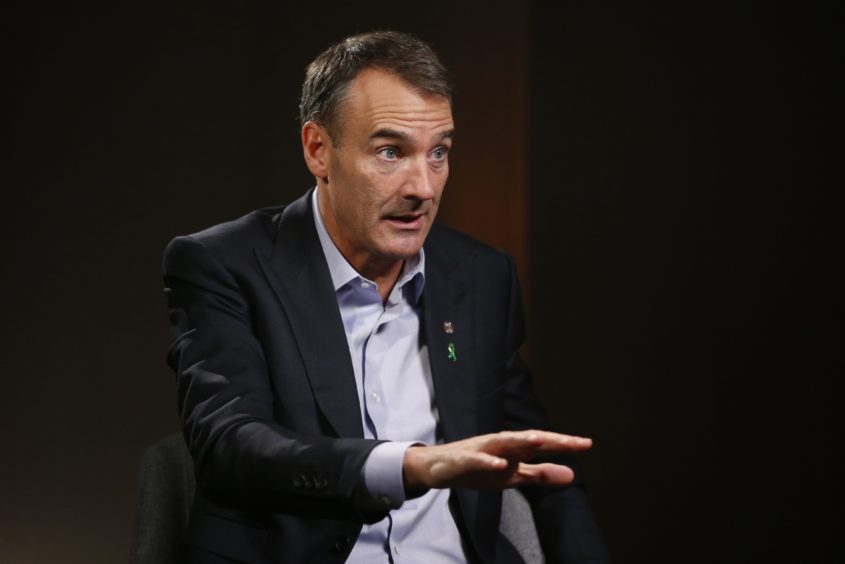
Pension funds are expressing “deep frustration” with the net zero strategy of BP (LON: BP) as the firm’s chairman, Helge Lund, looks to be re-elected at the supermajor’s AGM.
The London-headquartered energy giant will hold its annual general meeting (AGM) today – with some funds expected to vote against Mr Lund’s re-election.
The chairman received a wage of £822,000 from BP last year, and the value of his shares in the firm came to £3,360,000.
BP ‘backtracked’ on climate commitments
Earlier this year, Mark van Baal, head of Follow This, an activist shareholder that has taken small stakes in Big Oil, said BP had “backtracked” on its emissions plan and could no longer claim to be aligned with the Paris climate agreement.
Follow This has tabled its own proposal – resolution 25 – calling for BP to include scope three emissions in its existing 2030 reductions.
Scope Three covers emissions down the value chain, such as from customers consuming goods produced by BP.
BP urged shareholders to vote against the resolution, calling it “unclear” and “simplistic”.
The supermajor has previously said it intends to balance its spending focus across oil and gas and “transition growth engines”, adding an extra spend of up to $8bn each to 2030.
Pension companies are supporting the views of activist groups, with National Employment Savings Trust (Nest) – the firm responsible for 11 million workplace pensions – demanding that BP rethink its net zero strategy.
More organisations have vowed to back the Follow This vote, with the Universities Superannuation Scheme and the council pensions fund Border to Coast also showing support.
A major focus of today’s meeting will be the company’s “net zero ambition” as well as the supermajor’s remuneration policy for its directors.
Shareholders express ‘deep frustration’
Lindsey Stewart, director of investment stewardship research at Morningstar, said: “Many pension funds and asset managers have frequently indicated that they intend to hold specific directors accountable for companies’ net-zero strategies this year — this is a good example.
“In investment stewardship, voting against a company chair is one of the strongest escalations a shareholder can implement.
“So, there’s clearly very deep frustration on the part of the pension funds who intend to vote against Helge Lund’s re-election as chair.
“We’ve seen the rise of “say-on-climate” votes in the last couple of years at UK and European companies, at which shareholders approve companies’ climate strategies and reporting.
“These votes aren’t mandatory, but BP did choose to hold such a vote last year, as did several of its European energy sector peers including Shell, TotalEnergies, Equinor and Repsol.
“So now, many shareholders are dissatisfied with BP’s actions to adopt less ambitious net-zero goals without offering shareholders the opportunity to vote again on the topic.”
Record breaking profits
BP’s profits increased by more than 100% last year as it recorded takings of $27.7 billion – 2021 earnings were $12.8bn.
The British supermajor’s chief executive, Bernard Looney, took home an annual salary of £10.03 million throughout the record-breaking year in return for his efforts.
The 11 members on BP’s board saw a 125% increase in pay last year – this comes as the average wage increase across the UK stood at 5.9%.
Jonathan Noronha-Gant, senior campaigner at Global Witness, commented: “As BP’s wealthy Board of Directors will be rolling into the AGM and slapping each other on the back, the rest of us will be hoping the weather quickly warms up so we can finally turn off the heating.
“It couldn’t be clearer that there is a deep inequality at the heart of the fossil-fuelled global energy system whereby a powerful few can get grossly rich whilst everyone else is worse off.
“On top of the great expense this system is causing to our pockets, the climate cost is even steeper and will hurt the poorest first and hardest.”
Recommended for you

Oil giants Harbour and BP agree to develop Viking CCS project








